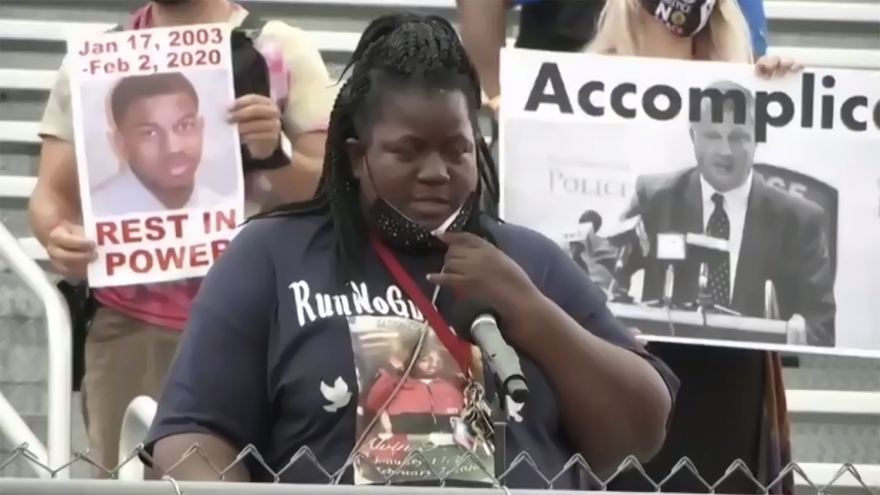After a panel on equity and inclusion recommended body cameras for officers and a ban on chokeholds and no-knock warrants in the city of Wauwatosa, the full city council held a listening session on "race, equity and police issues" on Tuesday night.
Wauwatosa has been grappling with how to address racial equity and police reform, in part because of Officer Joseph Mensah. In the past five years, he shot and killed three men while on-duty: Antonio Gonzales in 2015, Jay Anderson Jr. in 2016, and Alvin Cole in February.
The Wauwatosa Fire and Police Commission recently suspended Mensah, but activists say that's not enough and that he should be fired. The common council will make the final decision on those policy changes, and Tuesday night it opened up the stadium at Hart Park and invited the public's input.
Several people who took the mic provided different views of how the city should handle police policy:

Tracy Cole, mother of Alvin Cole
"Just imagine anyone out here with kids that my baby was only 17-years-old, was about to go to college. His dream is gone. Oh, because this psycho cop, trigger-happy cop shot his gun 19 times within five years. Y'all asking me what can you do for me? Is to get this man fired, immediately."
Eric Fanning, Wauwatosa resident
"I live on Burleigh, on the stretch between Mount Mary and Highway 100, which I call 'the gauntlet.' And by that, I mean a trap set exclusively for Black folks who happen to pass our door, headin’ home from work, visiting a friend at the hospital, maybe buying a gift at Mayfair. I’ve seen dozens of police stops yet cannot recall any involving someone who looked like me."

Kevin Sadler, Wauwatosa resident
"To all members of the common council and the Fire and Police Commission who voted to suspend Officer Mensah, I'm writing to express my disappointment with your recent vote to suspend him. Your decision to vote against law and order and abandon Officer Mensah is shameful."
Angela Harris, chair of the Black Educators Caucus
“I would say Wauwatosa, like many other villages across the country, are at a point of reckoning. There are members of your own community that are no longer satisfied with the fallacy of 'Midwest nice' or proclaiming that they are not racist. They are ready to do the work of being anti-racist."





